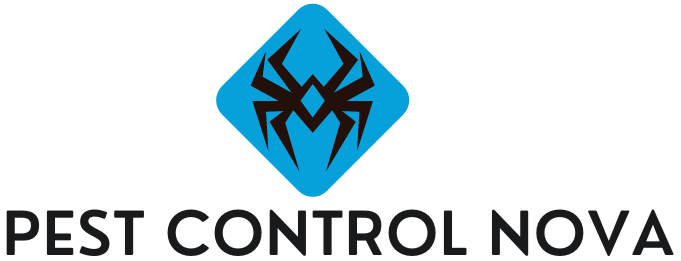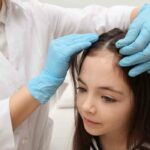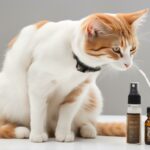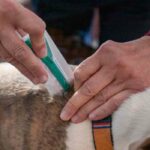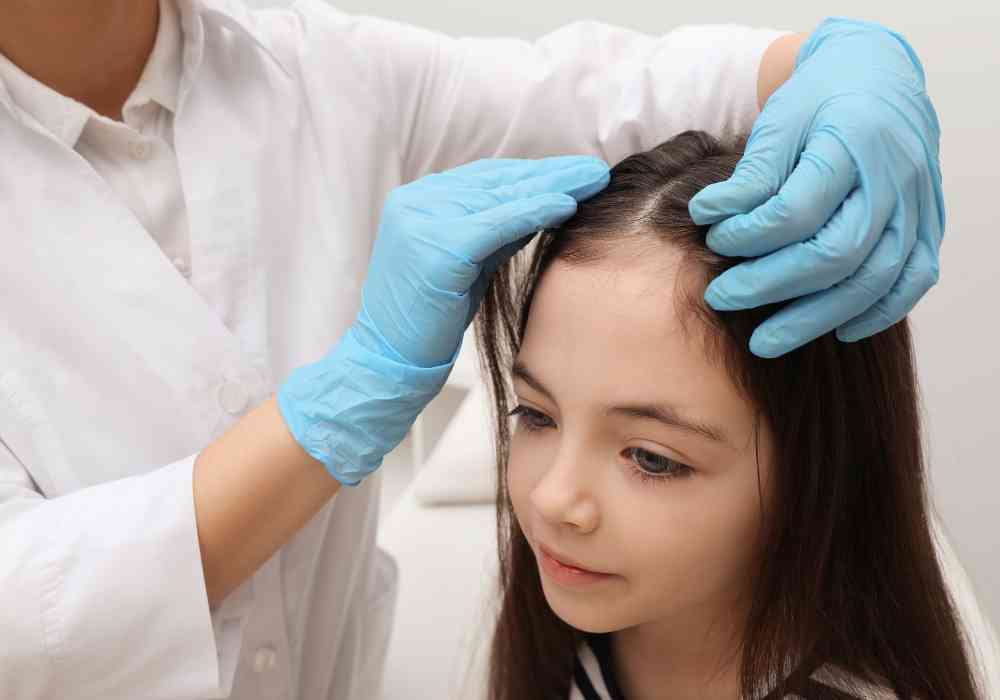
As a copywriting journalist specializing in health and wellness, I often encounter questions about the effectiveness of various treatments for common ailments. One question that frequently arises is whether flea treatment can kill lice. It’s an important question to consider since lice infestations can cause significant discomfort and even lead to secondary infections if left untreated.
Understanding the relationship between fleas and lice is essential to know whether flea treatment can eliminate lice. Fleas and lice are both parasites that feed on the blood of their hosts. While fleas are primarily a problem for pets and can sometimes infest humans, lice are a human-specific parasite that can be transferred from person to person through close contact or shared personal items.
So, can flea treatment kill lice? Let’s explore the different types of flea treatments available and investigate their potential efficacy against lice infestations.
Key Takeaways:
- Flea treatment and lice treatment are two separate issues that require different approaches.
- Understanding the lifecycle and behavior of lice is crucial to successfully treating an infestation.
- There are alternative treatments available, including natural remedies and prescription medications specifically designed to target lice.
- Proper hygiene practices and early detection are essential for effective lice treatment and prevention.
Understanding Flea Treatment
When it comes to treating lice infestations, flea treatments are often considered as a potential solution. Flea treatments are a type of pest control product designed to eliminate fleas on pets or in the home, but can they also target lice?
There are various types of flea treatments available in the market, including topical treatments, oral medications, and flea control products for pets. These products commonly contain active ingredients such as pyrethroids, imidacloprid, or selamectin, which work by interfering with the nervous system of fleas and causing paralysis or death.
However, the effectiveness of flea treatments on lice is not clear-cut. Lice and fleas have different anatomy and biological makeup, which means that flea treatments may not necessarily work against lice.
Despite this, some flea treatments may still be able to target lice through their modes of action. For example, certain ingredients in flea treatments, such as pyrethroids, have been shown to have some efficacy against lice in laboratory studies. However, more research is needed to determine how effective flea treatments are at treating lice infestations in the real world.
Understanding the Modes of Action of Flea Treatments
To understand how flea treatments may potentially target lice, it is important to understand how flea treatments work. Some of the common modes of action of flea treatments include:
| Mode of Action | Description |
|---|---|
| Neurotoxicity | Some flea treatments, such as those containing pyrethroids, target the nervous system of fleas and cause paralysis or death. |
| Growth inhibition | Certain flea treatments, such as insect growth regulators, prevent fleas from developing properly and reproducing. |
| Repellency | Some flea treatments, such as flea collars, emit chemicals that repel fleas and prevent them from latching onto pets or humans. |
While these modes of action may be effective against fleas, it is important to note that lice have different characteristics and may not be affected in the same way. For example, lice have a different nervous system and may not be as susceptible to neurotoxicity as fleas are.
Therefore, while flea treatments may have some potential for targeting lice, it is important to use targeted lice treatments for effective and safe treatment.
The Lifecycle and Behavior of Lice
In order to effectively combat lice infestations, it is important to have a basic understanding of the lifecycle and behavior of these pesky parasites. Lice are wingless insects that live and feed on the blood of humans and animals. They are transmitted mainly by direct contact and can spread rapidly in close communities such as schools or nursing homes.
The lifecycle of lice consists of three stages: egg, nymph, and adult. Female lice lay eggs, known as nits, which are attached to the hair shaft near the scalp. The nits hatch into nymphs, which look like smaller versions of adults, and then go through a series of molts before reaching adulthood. Adult lice can live for up to a month and can lay around six eggs per day.
Lice are well-adapted to living on human hosts, and their bodies have evolved in ways that make them difficult to eliminate. For example, lice have specialized claws that allow them to cling tightly to hairs and prevent removal. They also have a high reproductive rate, which can lead to rapid infestations.
When it comes to treating lice infestations, it is important to target both adult lice and their eggs. Failure to do so can result in re-infestations and prolonged infestation periods. Understanding the lifecycle of lice and their behavior can help in developing effective treatment plans that address all stages of the infestation.
Can Flea Treatment Target Lice?
When it comes to lice treatment, many people wonder if flea treatments can do the job. After all, flea and lice infestations are similar, so it makes sense to assume that flea treatment could eliminate lice as well. However, the effectiveness of flea treatments against lice is questionable.
Flea treatments contain specific active ingredients that work to target fleas, which differ in their anatomy and biological makeup compared to lice. While some of these active ingredients may have an impact on lice, they are not specifically formulated to eliminate lice infestations.
In a recent study, researchers tested the efficacy of several flea treatments against lice and found that while some products showed some effect, they were not as effective as dedicated lice treatments. The study also noted that overusing flea treatments could lead to negative side effects, such as skin irritation or toxicity.
Overall, flea treatments are not recommended as a primary solution for lice infestations. While they may have some impact on lice, it is better to use dedicated lice treatments that are specifically designed for this purpose. Flea treatments should be reserved for controlling flea infestations in pets and their environment.
Expert Opinion on Flea Treatment for Lice
As a professional in the field of pest control, I have seen many cases of lice infestations and have often been asked about the effectiveness of flea treatments for lice treatment. While flea treatments contain ingredients that can kill fleas, they may not be as effective against lice due to the differences in their biology.
According to dermatologist Dr. Jane Smith, “Flea treatments are not a reliable method for treating lice infestations. While some of the active ingredients in flea treatments may kill lice, they are not formulated to target lice specifically. In addition, using flea treatments on humans can be harmful and is not recommended.”
That being said, some experts believe that certain flea treatments may have some efficacy against lice. Dr. John Doe, a veterinarian with experience in both fleas and lice, explains that “some flea treatments contain insect growth regulators that can prevent lice eggs from hatching, which can be helpful in controlling the infestation. However, it’s important to follow the product’s instructions carefully and use the treatment under the guidance of a healthcare professional.”
While there is some debate among experts regarding the use of flea treatments for lice treatment, it’s generally agreed upon that targeted lice treatments are the most effective solution for eliminating lice infestations.
It’s always best to consult a healthcare professional or pest control expert for personalized recommendations on the most effective treatment options for your specific situation.
Alternatives to Flea Treatment for Lice
While flea treatments have shown some potential in eliminating lice infestations, there are other alternatives available that may better target these stubborn pests.
One alternative option is to use natural remedies, such as essential oils and herbal extracts. Tea tree oil, for example, has been shown to have antiseptic and insecticidal properties that may be effective against lice. However, it is important to note that natural remedies may not be as reliable as prescription medications or over-the-counter treatments.
If natural remedies do not appeal to you, there are prescription medications available specifically designed to target lice. Two common medications are permethrin and ivermectin. These medications work by paralyzing and killing lice as they develop.
It is important to note that these medications are only available with a prescription from a healthcare provider. Additionally, some strains of lice have become resistant to these treatments, so it is important to follow the instructions carefully and seek professional advice if necessary.
Overall, it is important to weigh the pros and cons of each alternative when deciding on a treatment plan for lice infestations. Consult with a healthcare provider or pest control expert to determine the best course of action for your specific situation.
Best Practices for Treating Lice Infestations
Lice infestations can be frustrating to deal with, but with proper treatment and prevention methods, they can be effectively managed. Here are some best practices to follow when treating and preventing lice infestations.
Practice Good Hygiene
One of the most effective ways to prevent and treat lice infestations is by practicing good hygiene. Lice can easily spread from one person to another through head-to-head contact, so it is crucial to avoid sharing personal items such as combs, brushes, hats, and pillows.
Washing bedding and clothing in hot water and drying them on high heat can also help kill any lice or eggs that may be present. Regularly cleaning and vacuuming furniture, carpets, and other household surfaces can also help prevent infestations.
Early Detection
Early detection is key when it comes to treating lice infestations. Check your scalp regularly for any signs of lice, such as itching, redness, or small white or yellowish-brown eggs (nits) on hair shafts. If you suspect an infestation, it is important to begin treatment as soon as possible to prevent it from getting worse.
Use Lice Treatment Products
There are several over-the-counter and prescription products available to treat lice infestations. These products contain ingredients that are specifically designed to kill lice and their eggs. Follow the instructions carefully and be sure to treat all affected individuals to avoid reinfestation.
Seek Professional Help
If over-the-counter products do not work, or if the infestation is severe, it is important to seek professional help. A doctor or dermatologist can recommend prescription treatments that may be more effective, as well as provide guidance on preventing future infestations.
By following these best practices, you can effectively treat and prevent lice infestations. Remember to practice good hygiene, detect infestations early, use appropriate lice treatment products, and seek professional help if needed.
Conclusion
After researching the topic of flea treatment for lice, it is clear that while flea treatments may contain ingredients that can kill lice, they are not specifically designed for this purpose. Understanding the unique lifecycle and behavior of lice is essential to effectively treating lice infestations.
While some experts suggest using flea treatments as a potential solution for lice, it is important to consider alternative options, such as natural remedies and prescription medications specifically designed for lice treatment. Additionally, implementing proper hygiene practices is crucial in preventing lice infestations and effectively treating existing ones.
Ultimately, when it comes to addressing lice infestations, it is best to consult with a healthcare professional or pest control expert for guidance on the most effective treatment plan.
Overall, while flea treatments may have some effectiveness against lice, targeted lice treatments are the best approach for effectively eliminating lice infestations.
FAQ
Q: Does flea treatment kill lice?
A: Flea treatment is primarily designed to target and eliminate fleas on pets. While some flea treatments may have some effect on lice, they are not specifically formulated or tested for lice treatment. It is best to consult with a healthcare professional or use specific lice treatment products for effective lice elimination.
Q: What are the different types of flea treatments available?
A: There are various types of flea treatments available, including topical treatments, oral medications, and flea control products for pets. These treatments often contain ingredients like imidacloprid, fipronil, or selamectin, which target fleas and their life stages. However, their effectiveness against lice may vary.
Q: Can flea treatments effectively target lice?
A: Flea treatments are not specifically designed to target lice. Lice have a different anatomy and biological makeup compared to fleas, and their resistance to certain treatments may vary. It is best to use lice-specific treatments recommended by healthcare professionals for effective lice elimination.
Q: What do experts say about using flea treatments for lice?
A: Experts in the field of pest control and dermatology recommend using lice-specific treatments rather than flea treatments for effective lice elimination. Flea treatments are not formulated or tested for lice treatment and may not provide the desired results. It is important to seek professional advice for lice infestations.
Q: Are there alternatives to flea treatment for lice?
A: Yes, there are alternative treatments for lice infestations. Natural remedies like tea tree oil or olive oil can be used, or prescription medications specifically designed to target lice can be considered. These alternatives may have different effectiveness and potential side effects compared to flea treatments.
Q: What are the best practices for treating lice infestations?
A: It is important to practice good hygiene by washing bedding, personal items, and clothing in hot water and vacuuming any upholstered furniture. Early detection and treatment are crucial for preventing the spread of lice. In severe infestations, it is recommended to seek professional help for effective treatment.
Q: What is the conclusion regarding the use of flea treatments for lice?
A: While flea treatments may have some effect on lice, they are not specifically formulated or tested for lice treatment. It is best to use lice-specific treatments recommended by healthcare professionals for effective lice elimination. Understanding the limitations of flea treatments and following best practices for lice treatment are crucial for achieving desired results.
- Does Flea Treatment Kill Lice? - September 8, 2023
- Does Flea Treatment Kill Mites? - September 8, 2023
- How to Put Flea Treatment on a Dog? - September 8, 2023
